Blog
Treating Anxiety, Stress And Depression – Part 3

This post is the third part of a series titled “Treating Anxiety, Stress And Depression”. If you’ve not already done so, we suggest you read parts one and two, as they will provide background information about the causes of anxiety, stress and depression, as well as the differences among the three. The earlier posts also discuss some natural ways of treating these emotional challenges. Please click here to view those posts:
Treating Anxiety, Stress And Depression – Part 1
Treating Anxiety, Stress And Depression – Part 2
How can acupuncture and Chinese herbs help those suffering with anxiety, stress and depression?
Over the past 3,000 years, Tradition Chinese Medicine—which includes acupuncture and Chinese herbs—has provided relief to millions of people suffering from a litany of ailments. Eastern medicine does not separate the physical body from the emotions; it recognizes the fact that they are completely intertwined. In opposition, the Western medical paradigm provides the field of psychology to help treat emotional issues, which it views as exclusively within the mind. Eastern medicine does not have (nor does it require) a separate field of specialists to handle these types of emotional challenges. Practitioners of Traditional Chinese Medicine are fully capable of resolving emotional ailments; they are viewed (and treated) as disharmonies that need to be resolved at the root level.
From a TCM perspective, there are a few different diagnoses that could cause a patient to experience anxiety, stress or depression. A licensed acupuncturist will accumulate information during a lengthy intake that will provide clues as to what the core issue(s) might be. There are several mental symptoms a practitioner will look for when formulating a diagnosis: low mood, melancholy, feelings of worthlessness, difficulty thinking/concentrating, guilt, withdrawal, poor memory and indecisiveness. There are also some physical symptoms that must be taken into consideration: headache, insomnia, sleeping too much, fatigue, lack of energy, poor appetite or over-eating, weight gain or loss, irregular menses, decreased sex drive, palpitations and constipation.
After the intake has been completed the practitioner will compile the information provided by the patient in an effort to create a diagnosis and develop a treatment plan. There are a variety of possible diagnoses that could be applicable to a patient experiencing anxiety, stress or depression.
One of the most common diagnostic presentations when dealing with emotional challenges is known as Liver Qi Stagnation. According to the philosophy of Chinese medicine, the Liver is responsible for the smooth flow of Qi (energy) throughout the body, including smoothing our emotions. Anger, irritability and frustration are all signs that our Qi is not flowing smoothly. This is referred to as Liver Qi Stagnation, one of the most common imbalances treated by Eastern medicine practitioners in the United States. [Link] When a patient has Liver Qi Stagnation, there are a number of different acupuncture points that are used to resolve the disharmony. There are also a few different herbal formulas that can be prescribed to work synergistically to help treat the symptoms while addressing the root issue.
Other TCM diagnoses that could be the cause(s) of emotional ailments include Liver/Heart Fire Flaring Up, Phlegm & Qi Stagnation, Blood Stasis, Disharmony Between Heart & Kidneys and Heart & Spleen – Qi & Blood Deficiency. (It is important to note that the names of the organs listed share similar functions but do not always equate from the Eastern to Western medical paradigms. There are some similarities but also some specific differences between the two perspectives. In a future blog post we will go into greater detail explaining how they contrast.)
Acupuncture and Chinese herbs are effective, efficient, natural, holistic and well capable of helping to provide relief to those suffering from anxiety, stress and depression. Receiving treatment from a licensed acupuncturist will ensure that the methods being used are from a properly and fully trained Traditional Chinese Medical practitioner.
As we’ve stated in previous blog posts, obtaining professional help should be paramount when dealing with emotional challenges. We strongly encourage you to seek out and obtain help if you are suffering emotionally.









